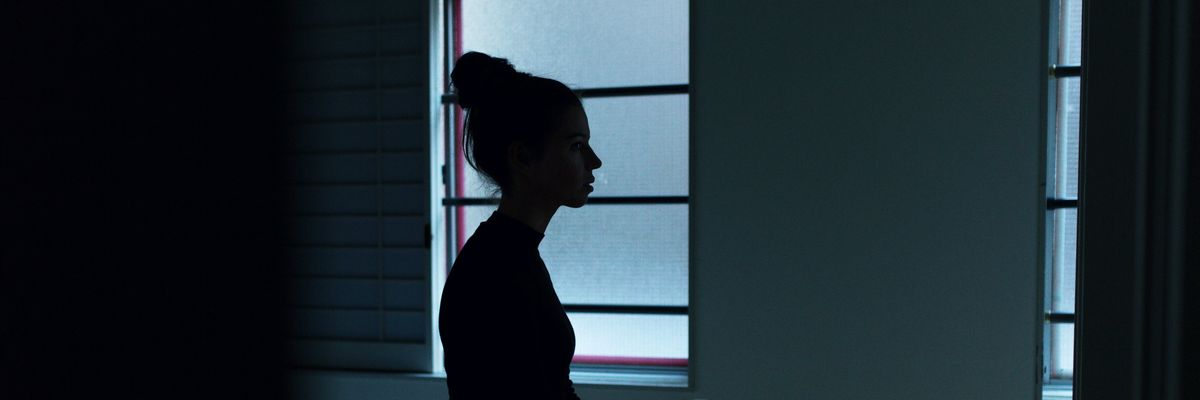
You’ve tried everything—blackout curtains, white noise machines, lavender sprays—but somehow, you’re still tossing and turning at night. What if the real culprit isn’t your bedtime routine, but what’s on your plate? The food you eat (and when you eat it) has a major impact on your sleep quality, and some surprising dietary habits could be keeping you from the deep, restorative rest you need. Here’s how your diet might be working against you when it comes to sleep—and what you can do about it.
There’s Too Much Sneaky Fat and Sugar
 Photo by Mathilde Langevin on Unsplash
Photo by Mathilde Langevin on UnsplashThat late-night fast food run or afternoon pastry habit might be doing more than just hold you back on your health and fitness goals, it could be messing with your sleep too. Research has found that diets high in fat and sugar can reduce the quality of deep sleep, even if you’re still getting the same number of hours. This happens because these diets interfere with your brain’s slow-wave activity, which is essential for deep, restorative sleep. Without enough of this slow-wave sleep, you may wake up feeling groggy, unfocused, and far from refreshed. If you’re craving a treat, try balancing it out with fiber-rich foods that support stable blood sugar levels and better sleep.
Your Eating Patterns Are All Over the Place
 Photo by Tamas Pap on Unsplash
Photo by Tamas Pap on UnsplashSkipping meals, especially breakfast, or eating at unpredictable times can throw off your body’s natural rhythm. Your circadian clock—the internal system that regulates your sleep-wake cycle—relies on consistent signals, including when you eat. If your meal times are all over the place, your body may struggle to establish a stable rhythm, leading to difficulty falling and staying asleep. Keeping a regular eating schedule can help your body sync up its internal clocks, making it easier to get quality rest at night.
Late-Night Carbs Can Cause Midnight Wake-Ups
 Photo by Yael Hofnung on Unsplash
Photo by Yael Hofnung on UnsplashCarbs can be a double-edged sword when it comes to sleep. While they can help increase serotonin levels (which makes you feel relaxed), eating refined or sugary carbs too close to bedtime can backfire. Foods like white bread, pasta, or sweets cause rapid spikes and crashes in blood sugar, which can lead to sudden awakenings in the middle of the night. If you need a bedtime snack, opt for complex carbs like oatmeal or whole-grain toast with nut butter to keep your blood sugar stable while you sleep.
You’re Not Getting Enough Fiber = Not Enough Deep Sleep
 Photo by Louis Hansel on Unsplash
Photo by Louis Hansel on UnsplashA low-fiber diet doesn’t just affect your digestion, it can also cut into your deep sleep. Fiber-rich foods, such as fruits, vegetables, and whole grains, help regulate blood sugar and gut health, both of which play a role in sleep quality. Without enough fiber, you’re more likely to spend less time in the restorative stages of sleep, which means waking up feeling less refreshed. If you’re struggling with restless nights, consider adding more fiber to your meals, especially earlier in the day.
You’re Eating Too Much Protein Before Bed
 Photo by Caroline Attwood on Unsplash
Photo by Caroline Attwood on UnsplashEating a big protein-heavy meal close to bedtime—think steak, chicken, or even a hefty protein shake—might not be the best move for your sleep. Protein takes longer to digest than other macronutrients, meaning your body stays busy breaking it down when it should be winding down for rest. This can lead to discomfort, indigestion, and even increased alertness, making it harder to fall asleep. That said, a moderate protein intake before bed can be tolerated well and even be beneficial. Studies have shown that higher-protein diets can be associated with improved sleep indexes, including decreased wake episodes and shorter sleep onset latency. It's a matter of finding the amount of protein and meal timing that works best for you. If you consistently experience discomfort or sleep disturbances after eating close to bedtime, start tweaking your meals and listen to your body.
Your Diet Might Include More Caffeine Than You’re Aware of
 Photo by Mike Kenneally on Unsplash
Photo by Mike Kenneally on UnsplashYou already know that coffee before bed is a bad idea, but caffeine is sneaky and it’s hiding in more places than you might expect. Some flavored waters, ice creams, energy bars, and even certain medications contain caffeinehttps://www.henryford.com/blog/2024/04/hidden-sources-of-caffeine, and consuming them too late in the day can keep you wired when you’re trying to wind down. Since caffeine has a half-life of up to eight hours, it’s best to check labels and be mindful of all sources, not just your morning latte.
A Little Alcohol Might Help You Fall Asleep, But It Wrecks Your Sleep Quality
 Photo by Jeff Siepman on Unsplash
Photo by Jeff Siepman on UnsplashA glass of wine might make you feel drowsy, but alcohol is notorious for disrupting sleep. While it can help you fall asleep faster, it interferes with REM sleep—the stage of sleep responsible for memory, emotional processing, and cognitive function. As your body metabolizes the alcohol, it can also cause fragmented sleep, leading to frequent awakenings and poor-quality rest. If you’re having trouble sleeping, cutting back on alcohol—especially within a few hours of bedtime—could make a noticeable difference.
You’re Lacking an Essential Amino Acid: Tryptophan
 Photo by Raspopova Marina on Unsplash
Photo by Raspopova Marina on UnsplashTryptophan is an amino acid essential for producing serotonin and melatonin, both of which are key players in sleep regulation. However, tryptophan competes with other amino acids to cross into the brain, so simply eating turkey at Thanksgiving isn’t enough to guarantee better sleep. To make tryptophan more effective, pair it with complex carbohydrates (like whole grains or sweet potatoes), which help increase its absorption. Foods like eggs, nuts, and dairy can also provide a natural boost to your body’s sleep-promoting chemicals.




